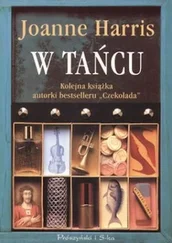Jay nodded. He understood that perfectly.
‘But with you…’ She smiled. ‘Maybe it’s because you’re a foreigner. I feel I’ve known you for a long time. Trusted you. Why else should I have trusted you with Rosa?’
‘Marise.’ He swallowed again. ‘There’s something I really-’
‘Shh.’ She looked languid, flushed with the wine and the warmth of the room. ‘I need to tell you. I need to explain. I tried before, but-’ She shook her head. ‘I thought it was so complicated,’ she said softly. ‘It’s really very simple. Like all tragedies. Simple and stupid.’ She took a breath. ‘I was caught up in it all before I knew it. Then I realized it was too late. Pour me some more Armagnac, please.’
He did.
‘I liked Tony. I didn’t love him. But love doesn’t sustain anything for long anyway. Money does. Security, the farm, the land. That was what I needed, I told myself. Escape from Patrice. Escape from the city, and from loneliness. I fooled myself it was OK, that I didn’t need anything else.’
It had been all right for a time. But Mireille was becoming increasingly demanding, and Tony’s behaviour more and more erratic. Marise tried to talk to Mireille about it, but without success. As far as Mireille was concerned there was nothing wrong with Tony.
‘He’s a strong, healthy boy,’ she would repeat stubbornly. ‘Stop trying to wrap him in cotton. You’ll make him as neurotic as you are.’
From then on every peculiarity in Tony’s behaviour was attributed to Marise: the rages, the bouts of depression, the fixations.
‘Once it was mirrors,’ she said. ‘Every mirror in the house had to be covered up. He said it was because the reflection took all the light out of his head. He used to shave without a mirror. He was always cutting himself shaving. Once he shaved his eyebrows off, too. Said it was more hygienic’
When he learned Marise was pregnant Tony entered a different phase. He became extremely protective. He would follow her everywhere she went, including to the bathroom. He waited on her constantly. Mireille saw this as evidence of his devotion. Marise felt stifled. Then the letters started coming.
‘I knew it was Patrice straight away,’ admitted Marise. ‘It was his style. The usual abuse. But somehow here he didn’t frighten me. We had guard dogs, guns, space. I thought Patrice knew it, too. Somehow he’d found out about my pregnancy. The letters were all about it. Get rid of the baby and I’ll forgive you, that kind of thing. I ignored them.’
Then Tony found out.
‘I told him everything,’ she said wryly. ‘I thought I owed it to him. Besides, I wanted him to understand that we were safe, that it was all in the past. Even the letters weren’t coming as often. It was dying down.’
She sighed. ‘I should have known better. From then on we lived a siege. Tony would go into town once a month for supplies, that was all. He stopped going to the café with his friends. That was no bad thing, I thought. At least he was sober. He hardly slept at night. He spent most of the time on guard. Of course, Mireille blamed me.’
Rosa was born at home. Mireille helped deliver her. She was disappointed Rosa wasn’t a boy, but there would be plenty of time for that later. She expressed surprise that Rosa looked so small and delicate. She gave advice on feeding, changing and care. Often the advice came close to tyranny.
‘Of course, he’d already told her everything,’ Marise remembered. ‘I should have expected it. He was incapable of hiding anything from her. In her mind I quickly became the villain of the story, a woman who led men on then expected her husband to protect her from the consequences.’
A fierce cold sprang up between the two women. Mireille was always at the house, but rarely addressed Marise directly. Whole evenings would pass, with Tony and Mireille talking animatedly of events and people of which Marise knew nothing. Tony never seemed to notice her silence. He was always cheery and animated, allowing his mother to fuss over him, as if he were still a boy instead of a married man with a newborn baby. Then, out of the blue, Patrice came to call.
‘It was late summer,’ Marise recalled. ‘About eight in the evening. I’d just fed Rosa. I heard a car on the drive. I was upstairs and Tony went to the door. It was Patrice.’ He had changed since the last time she had seen him. Now he was plaintive, almost humble. He did not demand to see Marise. Instead he told Tony how sorry he was about what had happened, that he had been ill, that only now had he been able to face up to that fact. Marise listened from upstairs. He had brought money, he explained, 20,000 francs. Not enough to pay for the harm he had done, but perhaps enough to start a trust fund for the baby.
‘He and Tony went out back together. They were gone a long time. When Tony returned it was dark, and he was alone. He told me it was over, that Patrice wouldn’t trouble us again. He was more loving than he’d been for a long time. I began to think things were going to be OK.’
For a few weeks they were happy together. Marise looked after Rosa. Mireille kept her distance. Tony no longer stood guard at night. Then one day, as she went to pick some herbs by the side of the house, Marise found the barn door half open. Going to shut it, she found Patrice’s car, ill-concealed behind some bales of straw.
‘At first he denied it,’ she said. ‘Just like a boy. Refused to admit I’d seen it at all. Then he went into one of his rages. Called me a whore. Accused me of seeing Patrice behind his back. At last he admitted it. He’d taken Patrice into the barn that day and killed him with a spade.’
He showed no remorse. He’d had no choice. If anyone was at fault it was Marise herself. Grinning like a guilty schoolboy, he explained how he had brought the car into the barn and hidden it, then buried Patrice somewhere on the estate.
‘Where?’ asked Marise.
Tony grinned again and shook his head slyly. ‘You’ll never know,’ he said.
After that Tony’s behaviour worsened rapidly. He would spend hours alone with his mother, then would lock himself in his room with the television blaring. He would not even look at Rosa. Marise, recognizing the symptoms of schizophrenia, tried to persuade him to return to his medication, but he no longer trusted her. Mireille had seen to that. He killed himself soon afterwards, and Marise had felt nothing but a guilty kind of relief.
‘I tried to leave after that,’ she said in a flat voice. ‘There was nothing left for me in Lansquenet but bad memories. I packed my bags. I even booked a train ticket to Paris for myself and Rosa. But Mireille stopped me. Tony had left her a letter, she said, telling her everything. Patrice was buried somewhere on the Foudouin estate, at our end or across the river. Only she knew where.’
‘You’ll have to stay here now, héh ,’ said Mireille in triumph. ‘I won’t let you take my Rosa away. Otherwise I’ll tell the police you killed the man from Marseilles, that my son told me about it before he died, that he killed himself because he couldn’t stand the burden of protecting you.’
‘She was very persuasive,’ said Marise, with a touch of bitterness. ‘Made it clear that she was keeping quiet for Rosa’s sake. Keeping it in the family.’
After that came the campaign to separate Marise from the rest of the village. It wasn’t difficult; in the course of that year she had hardly spoken to anyone and had spent most of her time isolated on the farm. Mireille released all her hidden resentment. She spread rumours around the village, hinted at dark secrets. Tony had been popular in Lansquenet. Marise was only an outsider from the city. Soon the reprisals began.
‘Oh, nothing too serious,’ said Marise. ‘Letting off fireworks under my windows. Letters. General harassment. I’d had worse with Patrice.’
Читать дальше












